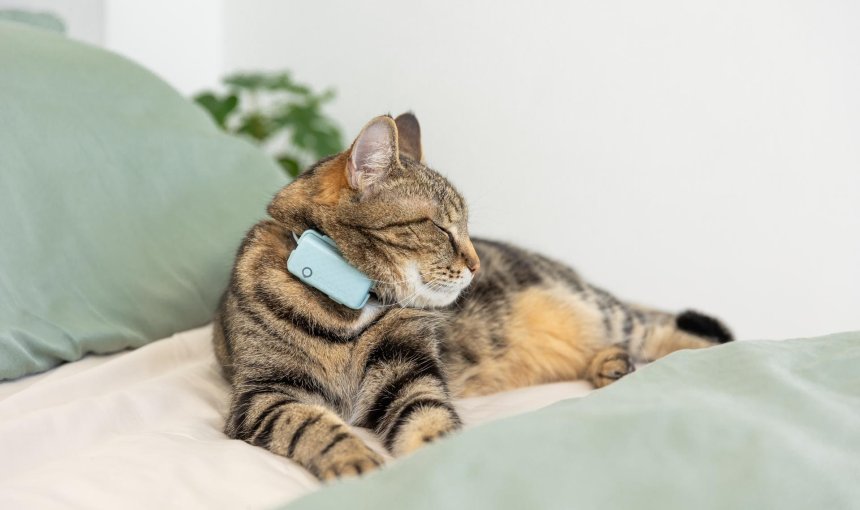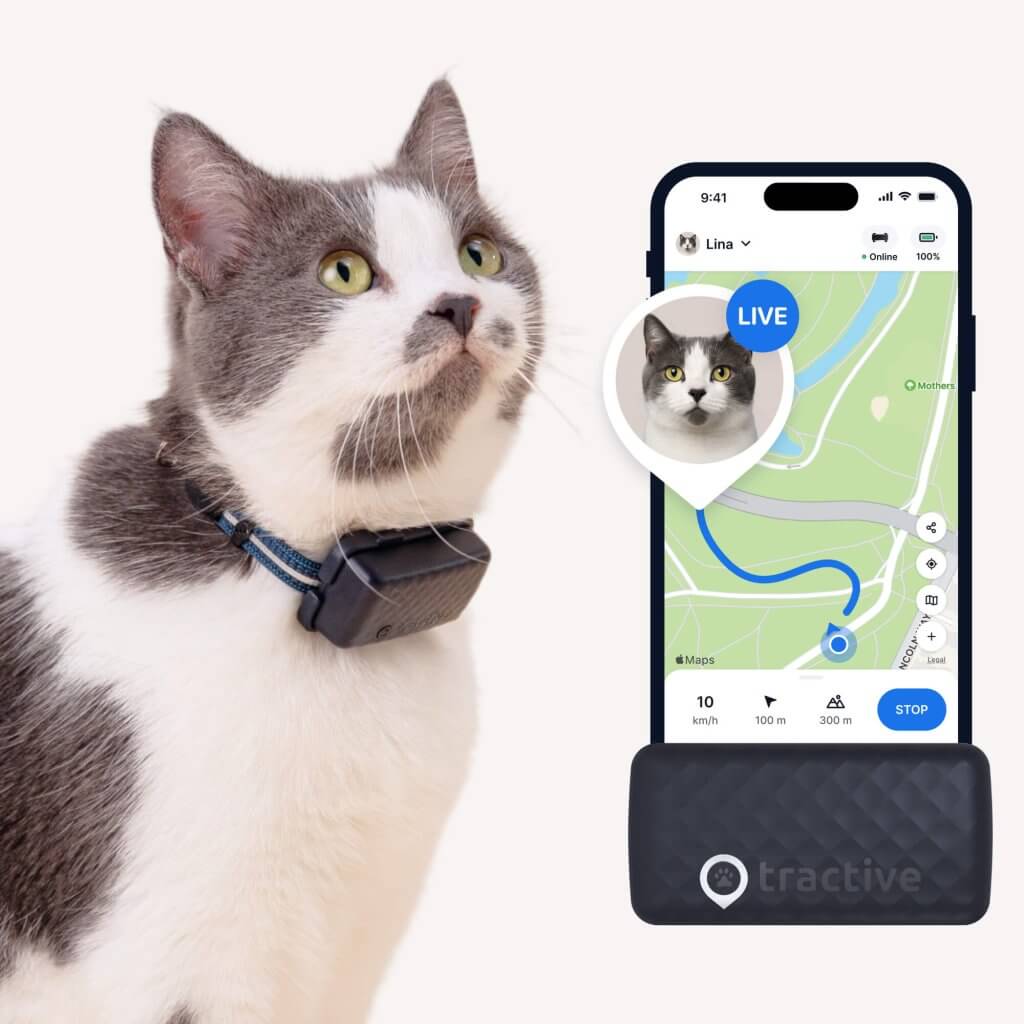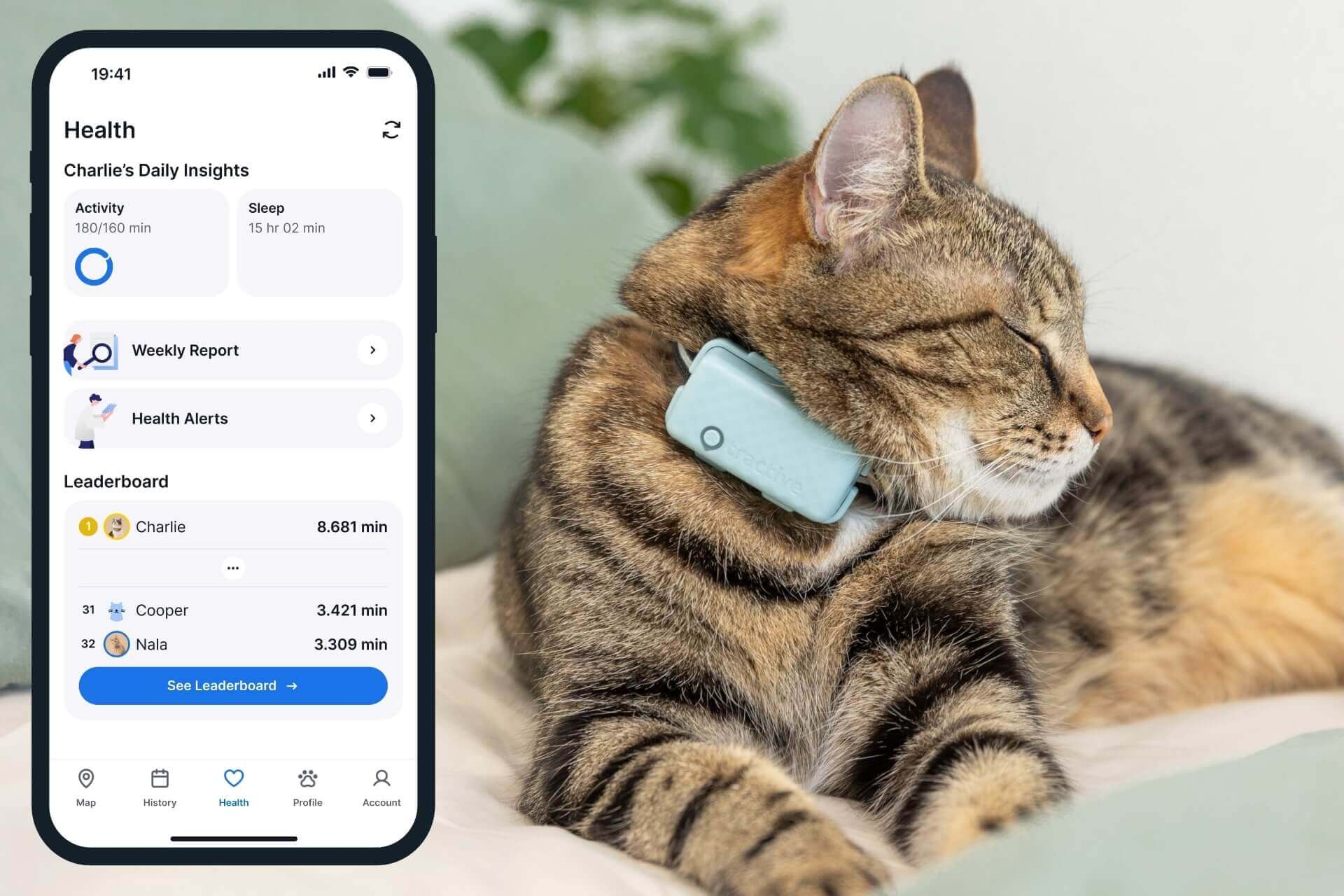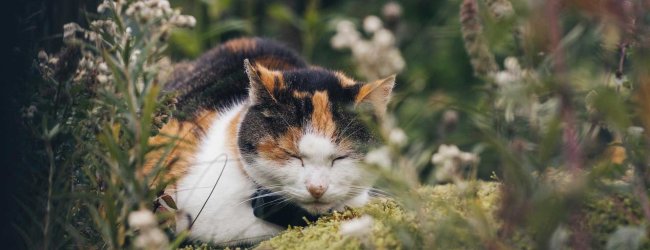 Approved by Dr. Dwight Alleyne, DVM
Approved by Dr. Dwight Alleyne, DVM Why Do Cats Sleep So Much? Cat Sleeping Patterns, Explained!
Is your feline king or queen sleeping all day? How much is too much sleep for cats - and when is it cause for concern? Here's everything you need to know about cat sleeping habits & how to take an active role in their health and well-being.

Why do cats sleep so much? Is the amount of time your cat sleeps normal? How much sleep is enough sleep for a cat, anyway? And can too much sleep be a sign of a serious health issue? Here’s everything you’ve always wanted to know about cats’ sleeping behaviors and patterns – including how to spot a change in your cat’s sleep levels that might signal a health issue.
Key Takeaways
Your cat sleeps so much because of their biological wiring.
Even though your cat might just be hunting for kibble, their bodies are built for the “hunt, feast, sleep, repeat” cycle of a predator. All that sleep helps them conserve energy for their next burst of activity, usually at dawn or dusk.
Your cat’s age and health matter.
Just like humans, a cat’s sleep patterns can change throughout their life. Kittens and senior cats tend to nap more, while adult cats have slightly more moderate sleep schedules.
A smart cat collar can prevent an emergency.
Your Tractive device can help you monitor a change in your cat’s sleep cycles. As this is often a sign of cognitive decline (especially in older cats), it means you can get them checked up quicker and earlier.

Find out where your cat spends their time.
Read moreWhy do cats sleep so much?
Just like us, cats need sleep to survive. Regular sleep recharges and restores the body for the next day, and supports memory function as well as the immune system. Different types of sleep including NREM and REM support different functions of the body.
Cats have evolved to sleep for long periods during the day. Doing so allows them to save on energy, which in the wild they would use for hunting, chasing, and finding their next meal. Just like big cats, your house-lion still keeps to a schedule of hunting, feasting and sleeping.1 Even the most domesticated of cats are still driven by this ancient biological wiring.
Because of this, cats tend to sleep more lightly than humans and take several cat naps throughout the day, rather than one long, deep sleep session at night.
How much do cats sleep?
According to veterinary experts, cats normally sleep anywhere from 12 – 20 hours a day2. The average is 15 hours a day, with 40% of all cats sleeping over 18 hours a day. That’s right, your cat sleeps about 2-3 times as long as you! Cats also tend to sleep more hours per day as they grow older.
As for the exact amount of hours a cat sleeps, that depends on factors such as:
- Age
Senior cats have less energy and tend to sleep more than younger cats. Kittens, like babies, require lots of sleep to grow. - Activity level
Cats tend to need to sleep more after a high-action day. - Health condition
If your cat is suffering from a disease, for example cat dementia, their sleeping cycle may be affected.
⚠️ Watch out though – a change in your cat’s sleep patterns (especially as they grow older) can be a sign of concern. In fact, one of the early signs of Cognitive Dysfunction syndrome (CDS) in cats is:
“…a change in sleep-wake cycles – e.g., the cat is awake when normally sleeping and vice versa.”
– International Cat Care3
So if you’ve got a senior cat at home, it’s wise to keep an eye out for any changes in behavior – especially around their normal sleep times – so you can catch on to a shift earlier. (And get them to a vet for a preventive checkup, before their condition worsens.)

Track your cat wherever they go
See where they are in real-time, no matter how far they roam. Discover their territory. Get alerted if they go too far. Track activity, sleep, and receive health alerts if your cat’s activity changes. Keep your feline friend healthy and safe.
How long do cats sleep?
Our feline friends, unlike us, are polyphasic sleepers. This means that cats sleep several times a day, rather than in one long period. So this explains why your cat probably never sleeps through the night like you do. Instead, your cat naps multiple times throughout the day, usually for period of 50 to 113 minutes, or 78 minutes on average.4
How long do kittens sleep?
Newborn kittens need much more sleep than adult cats. In the first weeks of life, kittens sleep almost continuously. They might wake up occasionally to nurse with Mama Cat. But as they get older, they stay awake for longer – but even as they continue to grow, young cats still sleep for a large part of the day. (Often 16 to 20 hours!) As cats grow older, their daily hours of sleep decrease as well.
Are cats nocturnal?
Nope, cats are crepuscular, not nocturnal. This means that they’re most active at dawn and dusk. This behavior is based on their hunting behavior, as cats in the wild tend to prey on animals who are also most active around these times. So if you feel uneasy about your kitty walking around at night, remember that they’re much better equipped for the dark than you are.
Is my cat sleeping too much? Or too less?
Changes in sleep patterns may be normal – but could also indicate illness in your cat8. If you notice your cat is sleeping more – or less – than normal, plus displaying other worrisome behavior such as not eating, this could signal a serious health issue.
Where a smart cat collar with Sleep Tracking can help
With its built-in motion detector, your trusty Tractive device picks up on your cat’s movements throughout the day – including when they’re asleep. Which, with time, helps you build a picture of your cat’s sleeping behavior. Including:
- How much sleep your cat gets on the regular
- How much quality sleep this includes – plus how many times they were disturbed
- Any weird spike or dip in your cat’s sleeping behavior – like if they’re sleeping too much or too little

All of which can lead to a more productive, data-driven, informed discussion with your vet. No need to rely on your memory, where you might end up missing some important details.
Your furry friend’s health and wellbeing means as much as to us as it does to you. So we’ve made it a priority to only share medically-relevant content on our blog. This post was checked, double-checked, and medically verified by Georgia-based vet, Dr. Dwight Alleyne.

Dr. Dwight Alleyne, DVM
Originally from Long Island, New York, Dr. Alleyne began his career at a no-kill animal shelter before becoming a licensed veterinary technician. He graduated from Cornell University Veterinary College in 2006 and completed an internship at Purdue University. Now practicing in Georgia, Dr. Alleyne specializes in soft tissue surgery and ultrasounds. He also writes pet health articles on his website, “The Animal Doctor Blog” (www.anmldrblog.com).



